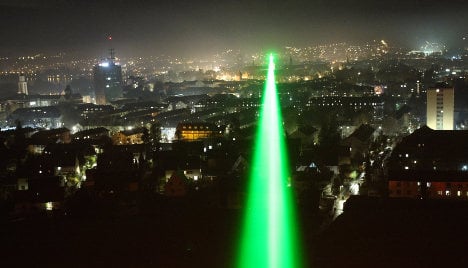“The federal government must act as soon as possible before something happens and people are hurt,” Günter Krings, deputy head of the Christian Democratic Union parliamentary party told the Welt am Sonntag.
“An import ban is necessary for class three and four of these devices. And private people must be banned from bringing these strong lasers into the country.”
This would require a change in the law, but Krings said action was necessary.
“Police pilots and even rescue helicopters are blinded by these dangerous green lasers with increasing frequency,” he said.
Pilot’s association Cockpit called for an even tougher reaction, saying that an import ban would not be effective.
“Lasers with more than a Milliwatt of power cannot be sold in shops in Germany, but one can get them over the internet,” said Cockpit member Jörg Handwerg, calling for a ban on owning the strong lasers.
German air transport companies registered 273 blinding laser attacks last year, nearly eight times as many as the year before.
DAPD/hc



 Please whitelist us to continue reading.
Please whitelist us to continue reading.
Member comments